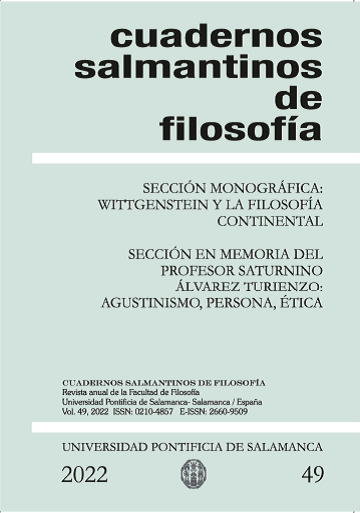Bliss and self fulfilment A study on full life in Spinoza and Maslow
Main Article Content
What connections and synergies could we find between the concept of “bliss” in Spinoza and Maslow’s research on “self-realization”? And, more specifically, ¿what is the resemblance between the wise person and the self-realized person? This article tries to give consistency to these questions. To tackle the arduous path of approaching works so apparently distant we have opted for taking as a departure point the fact that both authors refer to a kind of experience that has to do with “full life”. “Full life” is conceived like a process without finality, articulated around the knowledge of our own nature, that has a centrifugal character: it places us in reality; it is gratifying in itself and it challenges different modalities of ignorance. The experience of fullness departs
from the natural impulse to be who are intended to be and expresses itself in the development of that vital power that is accompanied by an edifying and happy effect. This article does not seek to make a comparison between the two, which is out of place given the contextual, conceptual and style differences. Its aspiration is to show some sinergies without creating unnecessary tensions.

